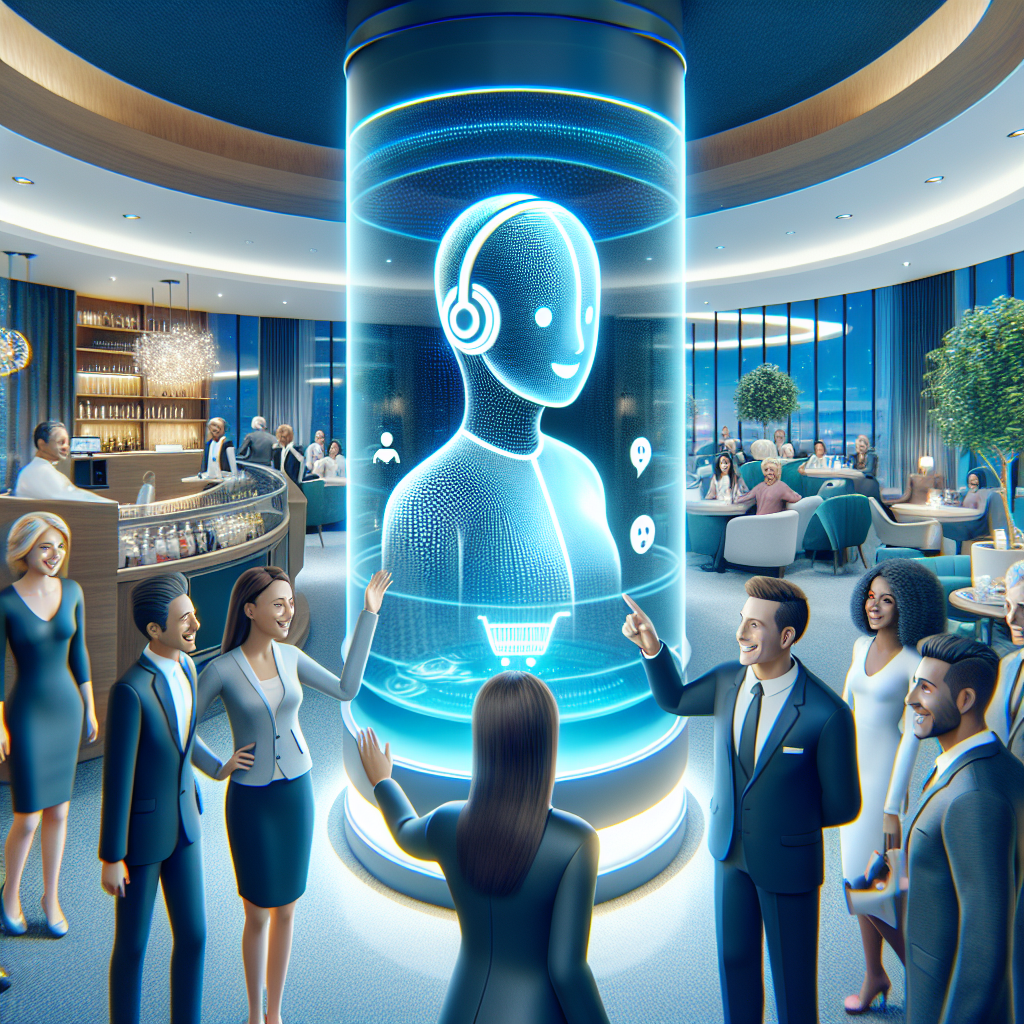Artificial Intelligence (AI) has been transforming various industries in recent years, and the hospitality sector is no exception. One of the most significant changes brought about by AI in the hospitality industry is the introduction of AI-powered virtual assistants, which are redefining concierge services and guest communication in hotels. These virtual assistants are revolutionizing the way hotels interact with guests, providing a personalized and seamless experience that enhances guest satisfaction and loyalty.
AI-powered virtual assistants are designed to understand natural language and provide intelligent responses to guest queries and requests. They can assist guests with a wide range of tasks, such as booking reservations, providing information about the hotel facilities and services, recommending local attractions and restaurants, and even handling room service orders. By leveraging machine learning algorithms, these virtual assistants continuously learn and improve their responses based on guest interactions, ensuring a high level of accuracy and efficiency.
One of the key benefits of AI-powered virtual assistants in hotels is their ability to provide 24/7 assistance to guests, enhancing the overall guest experience. Guests no longer have to wait in line to speak to a concierge or front desk staff, as they can simply use a virtual assistant on their mobile device or in-room tablet to get instant assistance. This not only saves time for guests but also frees up hotel staff to focus on more complex tasks and provide personalized service to guests.
Moreover, AI-powered virtual assistants can gather data on guest preferences and behavior, allowing hotels to offer personalized recommendations and promotions tailored to individual guests. This level of personalization helps hotels build stronger relationships with guests and increase customer loyalty. By analyzing guest data, virtual assistants can also identify trends and patterns that can help hotels improve their services and offerings.
In addition to enhancing guest communication and concierge services, AI-powered virtual assistants can also streamline operational processes within hotels. For example, virtual assistants can be used to automate routine tasks such as check-in and check-out procedures, room service orders, and housekeeping requests. This not only improves efficiency and reduces operational costs but also ensures a consistent level of service across all guest interactions.
Furthermore, AI-powered virtual assistants can help hotels gather valuable feedback from guests through surveys and feedback forms, enabling them to continuously improve their services based on guest input. By analyzing guest feedback in real-time, hotels can identify areas for improvement and take immediate action to address any issues that may arise.
Overall, AI-powered virtual assistants are transforming the hospitality industry by redefining concierge services and guest communication in hotels. These virtual assistants provide a personalized and efficient experience for guests, while also helping hotels streamline their operations and improve guest satisfaction. As technology continues to advance, we can expect to see even more innovative applications of AI in the hospitality industry, further enhancing the guest experience and driving business growth.
FAQs:
Q: How do AI-powered virtual assistants differ from traditional concierge services?
A: Traditional concierge services rely on human staff to assist guests with their requests and provide recommendations. AI-powered virtual assistants, on the other hand, use machine learning algorithms to understand natural language and provide intelligent responses to guest queries. Virtual assistants can offer 24/7 assistance and personalized recommendations based on guest preferences, enhancing the overall guest experience.
Q: Are AI-powered virtual assistants secure and trustworthy?
A: AI-powered virtual assistants are designed to prioritize guest privacy and data security. Hotels implement strict security measures to protect guest data and ensure that virtual assistants comply with data protection regulations. Guests can trust that their personal information is safe when interacting with AI-powered virtual assistants in hotels.
Q: How can hotels benefit from implementing AI-powered virtual assistants?
A: Hotels can benefit from implementing AI-powered virtual assistants in several ways. These virtual assistants can streamline operational processes, reduce costs, enhance guest communication, and improve guest satisfaction. By leveraging AI technology, hotels can provide a personalized and efficient experience for guests, ultimately driving business growth and loyalty.
Q: What are some challenges associated with implementing AI-powered virtual assistants in hotels?
A: Some challenges associated with implementing AI-powered virtual assistants in hotels include initial set-up costs, staff training, and ensuring the accuracy and reliability of virtual assistants. Hotels must also consider guest privacy and data security concerns when implementing AI technology. However, with proper planning and implementation, these challenges can be overcome, and hotels can reap the benefits of AI-powered virtual assistants.

